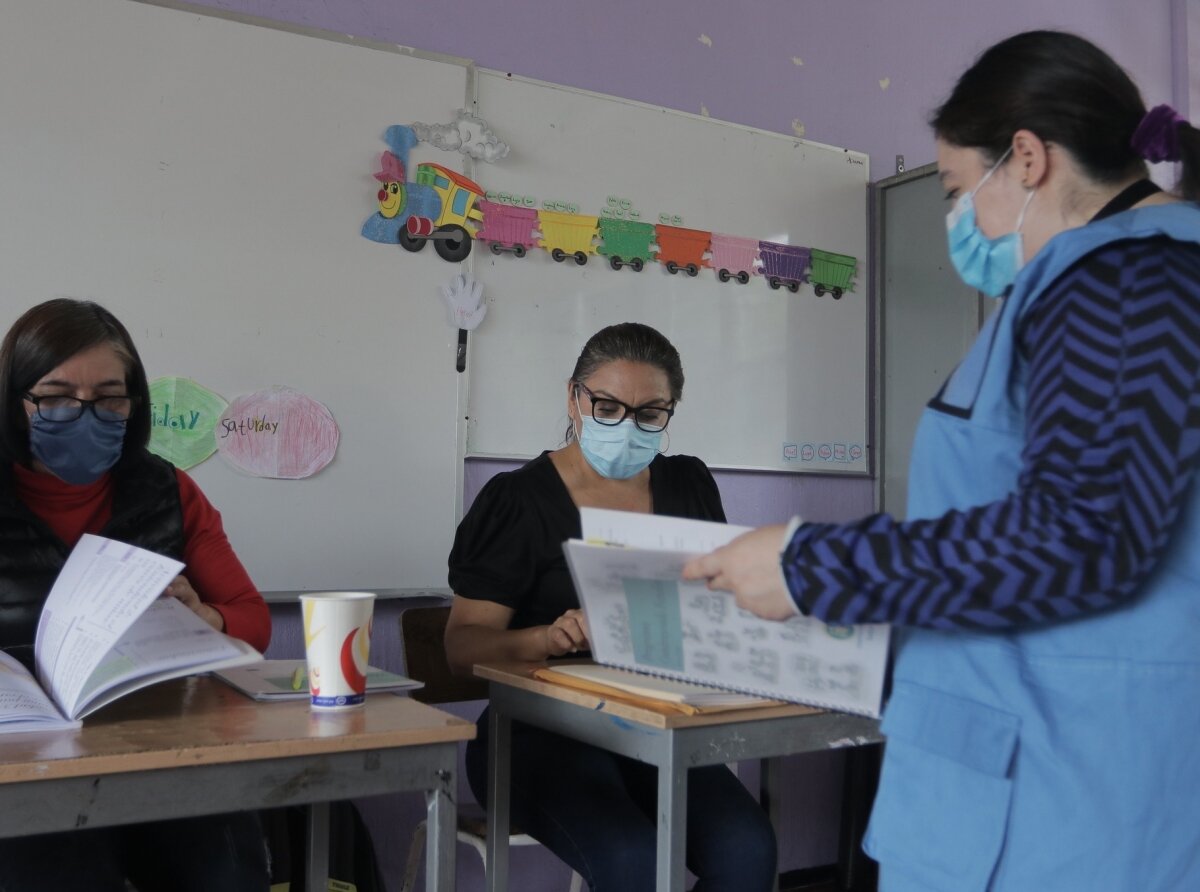During October and November, staff will receive observational training to strengthen their skills in positive parenting, stress management, and empathic treatment.
Staff members of the Building Families Program will accompany a group of trained caregivers from October 4 to 27 to replicate their knowledge as facilitators in the shelters of Casa Hogar Cabañas, Cien Corazones and Ciudad de los Niños.
Adda Garza Fuentes, coordinator of the Building Families Program, said that this work gives continuity to the work that began last June in Jalisco, when training on this program began for a group of caregivers from shelters. With the same objective, they began to spread the initiative in other spaces in favor of healthy, safe, and peaceful environments.
"Today we are going to put this knowledge into practice in which those caregivers will act as facilitators of the program. They will lead the pilots in order to strengthen certain skills," added Garza Fuentes.
In this way, it seeks to benefit 227 girls, boys, and adolescents from 8 to 15 years old, and 76 caregivers, with the aim of strengthening their skills in positive parenting, stress management, empathic treatment, and provide them with tools for effective communication aimed at preventing violence and addictions. Subsequently, the implementation will be scheduled for 66 caregivers from the Cien Corazones shelter.
Rebeca Melgar Chávez, director of Hogar Cabañas, specified the importance of this program to provide emotional support for girls, boys, and adolescents to strengthen them.
“Children should be shaping their future within a family, but in the company of the contention of love and positive energy to lead them to be successful young people. However, from our part as Hogar Cabañas, it is to do that emotional containment as if they were our own children, so that when they can become parents they do not repeat their history,” she affirmed.
As part of the activities, caregivers in training will carry out a pilot program from October 4 to 10 with 20 families selected from Casa Hogar Cabañas and Ciudad de los Niños to put their knowledge into practice. Subsequently, from October 11 to 27, it will be officially implemented with the resident population of the shelters.
This group will apply the methodology of the program with the rest of the staff and children from the family homes, who throughout these weeks will be divided into 10 work groups: 4 groups in Ciudad de los Niños and 6 groups in Hogar Cabañas.
Mireya Ordaz is a trainer at Ciudad de los Niños del Padre Cuellar, and pointed out that it has been very enriching to learn other types of tools since in a shelter population they work with girls and boys who have experienced situations that require greater support, understanding, and empathy.
“Especially the part where they help us with tools to know how to control stress and understand children's stress, because sometimes adults tend to minimize the stress that a child can experience because they consider that they are not old (enough) and that they are not so (stressed.) I hope that we can replicate the model that we are learning here, and with the passage of time and continuous practice, see what results it has on them and their families,” she said.
The sessions will cover topics such as learning about stress, the healthy balance between love and limits, teach girls and boys to follow rules as well as caregivers to communicate better with them, motivate good behavior, discourage misbehavior, and support home values and dreams.
This learning is approached both in a theoretical and reflective way, and in an experimental way, with the use of dramatizations, role-plays, techniques in emotion management, stress reduction practices, and group educational games.
The Building Families Program is based on international standards endorsed by the World Health Organization, and has been implemented for more than 10 years in 45 countries globally, and in 9 countries in the region.

